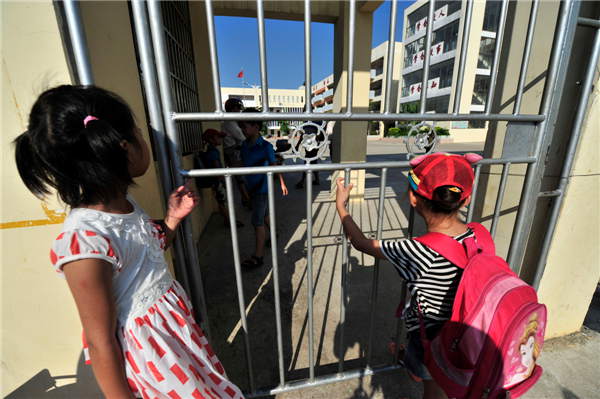
'Supportive of crimes'
Hashimoto said what he did was to win support from conservative forces and attract public attention for the upper house election in July, Zhou said.
The Japanese government distanced itself from Hashimoto's comments, AFP reported.
Japan's government spokesman and Chief Cabinet Secretary Yoshihide Suga refused to comment directly on Hashimoto's remarks, but said: "The government's position on the comfort-women issue is that, as I repeatedly said here, we feel pains toward people who experienced hardships that are beyond description, and (this) administration shares the view held by past governments."
Hashimoto's comments, in addition to a series of remarks of this kind made by influential Japanese politicians recently, have raised the ire of neighboring countries that suffered from Japan's wartime aggression.
A South Korean official said it was disappointing that a senior Japanese official "made comments supportive of crimes against humanity and revealed a serious lack of a historical understanding and respect for women's rights", The Associated Press reported.
Meanwhile, policy chief of Japan's ruling party, Sanae Takaichi, vowed on Sunday to keep paying homage to the Yasukuni Shrine that honors war criminals, despite anger and diplomatic protests by China and South Korea.
What is behind the popularity of these talks is the rise of militarism among Japan's right-wing forces and their intention to rewrite history, said Gao Haikuan, vice-president of the China Society of the History of Sino-Japanese Relations. Japanese Prime Minister Shinzo Abe's encouragement of extreme nationalism and the revival of militarism has something to do with this, Gao said.
Wang Xinsheng, a professor of Japanese studies at Peking University, said another reason for the popularity of rewriting history is Japan's confrontations with other Asian countries.
 |  |
















 Deaths prompt concerns over elevator safety
Deaths prompt concerns over elevator safety


![]()
